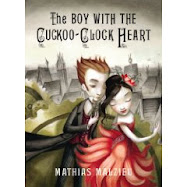
Of all the cliches, adages and tautologies on Masterchef, the word that turns my stomach again and again is 'passion'. Everything is about 'passion', it seems - passion for cooking, passion for food, passion for ingredients, passion for experimentation etc etc. It's terribly perfunctory. It has become a punctuation mark, a sentence filler for when the judges can't think of anything more insightful to say about a contestant. As Tony Naylor writes on the
Guardian Word of Mouth blog, Masterchef has stripped the word of any meaning through 'flagrant overuse'.It is also, more often than not, a euphemism. The cooking equivalent to the schoolmaster's "Ramsden tries hard" (i.e. Ramsden is thick as mud soup but I've got to wrestle some positive out of this car crash of a term).
For me it is not only overused, misused and abused, but it is a notion that is revered far beyond the measure it should be. This passion for food - what does it really mean? Passion is an ephemeral emotion, an intense, uncontrollable reflex. Passion doesn't sustain. It is the lusty throe of ecstasy, the impulsive stab of desire. Passion glints fleetingly in the glossy covers of food porn, or explodes magnificently in the climax of a meal. Passion does not last, and food cooked with passion and passion alone will most likely be inconsistent. There will be flashes of brilliance, sure, but in those moments when the spark is gone, what is left to support the cook?
For without love, there is nothing. Love and everything that comes with it - care, attention, nurture, devotion, and - yes - passion. Take Monday night. I had been working all day (a rarity), and returned late and hungry. Sunday's chicken had been made into stock, while any leftover meat had been stripped from the carcass and awaited my greedy advances. Against my better judgement (and due to a fairly empty fridge) I landed on making a risotto. I have never been convinced that chicken risotto works. I just don't feel that chicken's texture works well amidst the starchy grains, despite it being a leftovers staple. I'd rather prod it into a sandwich with a generous spoonful of mayonnaise, or, even better, toss it through crisp salad leaves with croutons and a piquant dressing.
But fate seemed to have decreed otherwise - the rice winked at me from the front of the cupboard, the stock was there, waiting, on the hob, the chicken already diced. There was even a bag of peas in the freezer to add bite and freshness. But because I was not convinced by the risotto's validity, I cooked it half-heartedly, one eye on the pot, one eye on the television. The result was a perfectly edible risotto, but one that did not come even close to inspiring any kind of passion in me whatsoever. The cooking had lacked care, and it tasted like it.
Two night's later I return in similar circumstances. This time there are two of us, and this time I have thought carefully about what I want to eat. I cook with all due care, attention, and love. The soup, while simplicity defined, is soothing and delicious. It is also quick and cheap.
Chilli beef noodle soupServes 2
4 spring onions, finely sliced
1 clove garlic, peeled and finely sliced
1 thumb of ginger, peeled and chopped into matchsticks
2 birds eye chillies, sliced
A handful of coriander, roughly chopped
300ml chicken stock
1 tablespoon fish sauce
Half a Chinese cabbage, sliced
100g oyster mushrooms, roughly chopped
1 rump steak
A handful of rice noodles
1 red chilli, halved, deseeded and sliced
Salt and pepper
Olive oil
Heat a tablespoon of oil in a saucepan and add the spring onions, garlic, ginger and chillies. Stir constantly for 30 seconds, then add the coriander (reserving a little for the end), chicken stock and fish sauce. Bring to the boil, then add the mushrooms and cabbage. Turn the heat right down and simmer while you prepare the rest of the soup.
Boil the kettle and pour the water over the rice noodles in a bowl. Leave to soak for five minutes.
Meanwhile, season the steak with salt and pepper and rub with olive oil. Get a frying pan very hot (so that holding your hand 6 inches above it is unbearable for more than a second or two) and fry the steak for two minutes on each side. Remove to a plate to rest.
Drain the noodles and divide between serving bowls. Spoon over the soup making sure you get plenty of cabbage and mushrooms. Slice the steak thickly and arrange over the bowls. Garnish with slices of red chilli and a handful of coriander.













